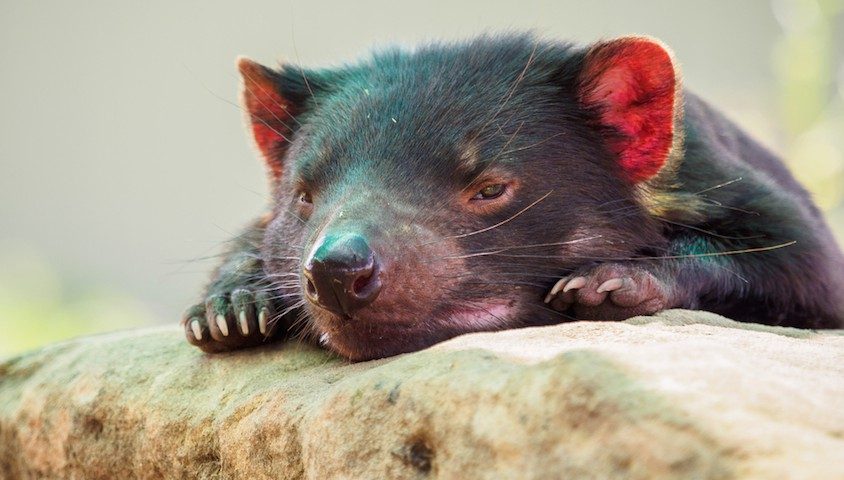An international research initiative led by the University of Tasmania’s Menzies Institute for Medical Research has succeeded in curing Tasmanian devils suffering from the fatal devil facial tumour disease (DFTD).
DFTD, a transmissible, parasitic cancer has been a major cause for concern regarding the future of Tasmania’s iconic marsupial species and a great deal of funding and research has been committed to finding a way to protect Devil populations not yet impacted by it.
Until recently, the focus of these efforts has been in prevention, by creating isolated, disease-free populations or developing a vaccine. Meanwhile, an estimated 80 to 95 percent of wild devils have been wiped out by the disease over the past 20 years.
Now it appears that medical researchers have created a cure.
Professor Greg Woods, who leads the DFTD team at Menzies, said devils with tumours the size of golf balls were treated with immunotherapy techniques, resulting in the tumours gradually shrinking and disappearing over three months.
“This is almost a Eureka moment for us because it’s the first time we can say for sure that it was the immunotherapy that was making the tumour shrink,” Woods said.
This latest breakthrough follows on the heels of earlier research that shows devil immune systems are capable of defending against DFTD.
“This is an important step along the way to developing a vaccine to protect against DFTD and potentially for immunotherapy to cure devils of established DFTD,” Woods said.
Dr Cesa Tovar, lead author on the new paper as published in Scientific Reports, said the results were encouraging, particularly in terms of finding a viable vaccine.
“Our research shows that a DFTD vaccine is feasible. We are focusing our efforts on developing strategies to improve the devils’ response to immunisation,” Dr Tovar said.
As the results were derived in a lab-based environment, it is yet to be seen what impact this treatment may have in the wild.


